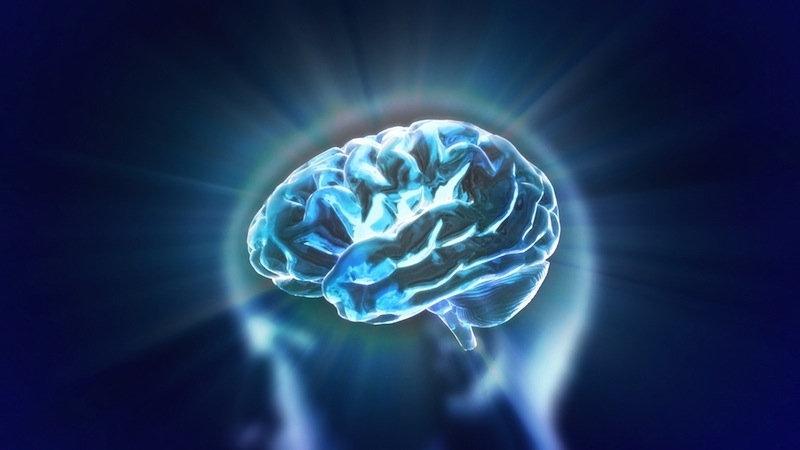Good Trip? LSD May Ease Anxiety

Lysergic acid diethylamide, better known as LSD or acid, has a checkered past — or, perhaps, a roiling and vibrantly colored past.
Since the drug was synthesized by chemist Albert Hoffman in 1938, acid has been used by an unlikely range of people, from counterculture guru Timothy Leary to undercover CIA spies conducting experiments on unsuspecting patrons of bars and restaurants.
Though U.S. research on LSD was banned in 1966, researchers in Europe are now reassessing its potential benefits. Doctors in Switzerland recently completed an LSD experiment examining the drug's effect on patients with anxiety. "In short, everything was groovy," the Los Angeles Times reported. [Slideshow: Scientists Analyze Drawings by an Acid-Tripping Artist]
No 'bad trips'
The researchers conducted their LSD experiment with 12 volunteers who were living with a life-threatening illness. (Most of them had terminal cancer.) They also scored high on tests measuring anxiety, and six were diagnosed with generalized anxiety disorder (GAD).
Eight of the volunteers were given a 200-microgram dose of LSD, and four were given an "active placebo" dose of 20 micrograms (which would produce some side effect to convince participants they were getting LSD), during two separate psychotherapy sessions. Each individual was monitored in a safe, quiet room in a doctor's office furnished with a comfortable chair, a mattress, music, a bathroom and other amenities.
"I told them that each session would be right here, in a safe environment, and I am part of it,'" Dr. Peter Gasser, lead researcher, told The New York Times. "I said, 'I can't guarantee you won't have intense distress, but I can tell you that if you do, it will pass.'"
Get the world’s most fascinating discoveries delivered straight to your inbox.
None of the patients experienced any severe adverse effects or a "bad trip," said the researchers, whose work is published in the online version of The Journal of Nervous and Mental Disease. Though there was some discomfort, including weeping and emotionally troubling insights, Gasser was available throughout the experiment for guidance and counseling.
"I had what you would call a mystical experience, I guess, lasting for some time, and the major part was pure distress at all these memories I had successfully forgotten for decades," one participant told the Times. "These painful feelings, regrets, this fear of death. I remember feeling very cold for a long time. I was shivering, even though I was sweating. It was a mental coldness, I think, a memory of neglect."
At a two-month follow-up, the researchers found significant reductions in anxiety in the LSD group compared with the placebo group, reductions that seemed to remain at a 12-month follow-up.
Another look at drug therapy
The LSD experiment is part of a growing trend toward taking certain drugs — long dismissed as "recreational" — more seriously for their therapeutic value. Despite a plethora of federal and state prohibitions against drug-related testing and research, investigators are discovering that many so-called party drugs have real health benefits.
Research published in the British Journal of Psychiatry in 2012 found that volunteers taking "magic mushrooms" containing psilocybin had enhanced recall, making mushrooms a possible supplement to psychotherapy. Another 2012 study, published in the journal Proceedings of the National Academy of Sciences, found that psilocybin slowed activity in the centers of the brain that are hyperactive in people with depression. [Image Gallery: 7 Potent Medicinal Plants]
Ecstasy, also known as MDMA, is a synthetic compound that produces hallucinations, feelingsof emotional warmth and high levels of energy. The same psychoactive properties that make ecstasy so popular with partygoers may also make it useful in treating post-traumatic stress disorder, or PTSD, some researchers say.
And a 2012 study from the journal Science found that ketamine may help stimulate the growth of synapses in the brain, and beneficial effects of the drug on people with chronic depression can occur within hours.
"The rapid therapeutic response of ketamine in treatment-resistant patients is the biggest breakthrough in depression research in a half century," Ronald Duman, professor of psychiatry and neurobiology at Yale University, said in a statement.
LSD study results
The LSD study is the first of its kind in more than 40 years, since the drug has been off-limits to most researchers around the world since the early 1970s.
The results showed that the eight volunteers who had taken the full 200-microgram dose of LSD reported measurably lower anxiety levels after their two sessions. The four volunteers who took the lower dose, however, reported higher levels of anxiety after their LSD trips.
Those who got the full dose of LSD also reported lower levels of anxiety up to a year after their sessions. In fact, "most of the participants stated a preference for more than two LSD sessions and a longer treatment period," the researchers wrote.
"I will say, I have been more emotional since the study ended, and I don't mean always cheerful," a volunteer told the Times. "But I think it's better to feel things strongly — better to be alive than to merely function."
Because of the study's limitations — a small group of volunteers, all of whom had life-threatening illness — the results can't begeneralized to a larger group. Nonetheless, researchers cited the urgent need for more effective treatment of anxiety, and called for further studies of LSD-assisted psychotherapy.
Follow Marc Lallanilla on Twitter and Google+. Follow us @livescience, Facebook & Google+. Original article on Live Science.



